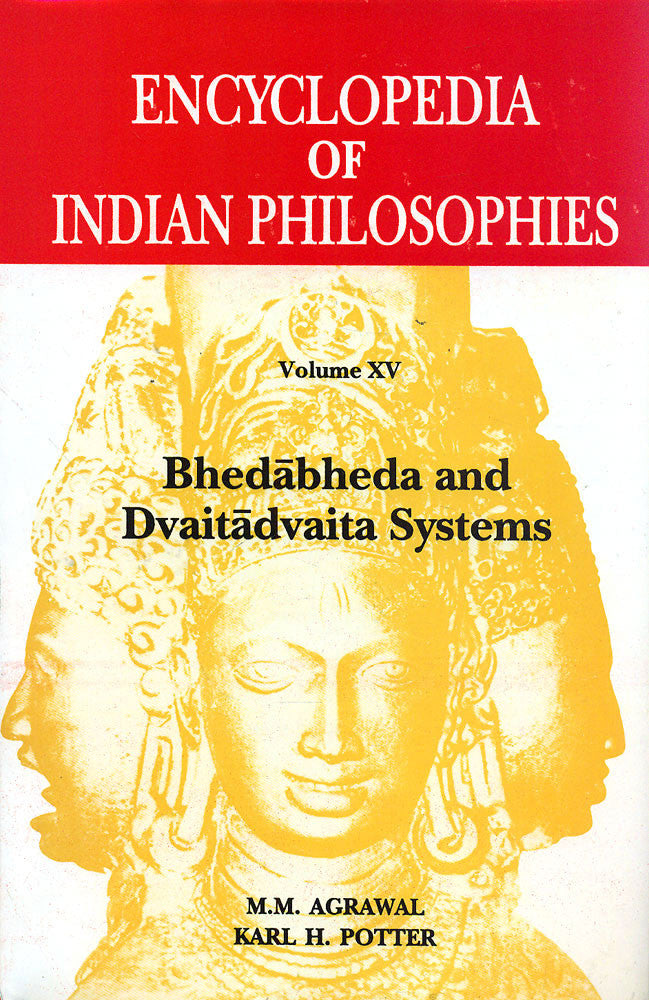Encyclopedia of Indian Philosophies (Vol. 15): Bhedabheda and Dvaitadvaita Systems
![]() 100% Genuine New Books
100% Genuine New Books
![]() Fast Shipping with Tracking Number
Fast Shipping with Tracking Number
Secure Payments via UPI, Cards & Wallets
![]() Trusted Support & Easy Returns
Trusted Support & Easy Returns
Encyclopedia of Indian Philosophies (Vol. 15): Bhedabheda and Dvaitadvaita Systems - Hardcover is backordered and will ship as soon as it is back in stock.
ISBN : 9788120836372, 8120836375
Year of Publication : 2016
Edition : Latest Reprint
No. of Pages : 700
Language : English
Condition : New
Publisher: Motilal Banarsidass Publishing House
Free shipping on orders over Rs. 249
Free shipping on orders over Rs. 249
We offer free shipping on orders above Rs. 249 in India. For orders below this threshold, a nominal shipping fee may apply, which will be clearly indicated during the checkout process.
How long will it take to receive my order?
How long will it take to receive my order?
The delivery time varies depending on your location. Generally, orders are processed and shipped within 1-3 business days. Once shipped, you can track and expect your order to arrive within 3-7 business days (the duration may vary depending on your location). For more information, please refer to our shipping policy.
Chat with a Real Person
Chat with a Real Person
WhatsApp chat is dedicated to assisting with after-sales queries regarding delivery, returns, and payments. Click below to initiate chat with us on WhatsApp:
[Bookstaa WhatsApp Chat].
For all other inquiries, please visit our customer support page or email us at support@bookstaa.com.
Couldn't load pickup availability
Description
Description
All too frequently the term Vedanta is used when what is meant, whether recognized or not, is Advaita Vedanta and more specifically, the philosophical system associated with Sankaracarya. Yet in fact Vedanta, literally meaning "the concluding portions of the Veda", i.e., the Upanisads, is properly used in Indian philosophy to designate those systems that take such texts as the Upanisads authoritatively along with a few others such as the Brahmasutras, alternatively known as the Vedantasutras. There are a goodly number of philosophical systems, other than Sankara's, that fall into the classification of Vedanta systems, many of them virtually unknown to most students.
The names of many of the Vedanta systems derive from their respective theories concerning the relation between Brahman, celebrated in the Upanisads as the highest principle, and Atman, the individual self. Advaita argues these are identical, non-different (abheda); Dvaita says they are completely different (bheda). Other Vedantic systems resist these extremes and argue that the relation between Brahman and self is one of identity-in-difference (bhedabheda). The best-known such system is the Visistadvaita system of Ramanuja and the Srivaisnavas, but there are many others. Here in this Volume the literature of several others of this bhedabheda persuasion-those associated with the names of Bhartr-prapanca, Bhaskara and Srikantha- are explored.
Review(s)
About the Publisher

Motilal Banarsidass Publishing House (MLBD)
Motilal Banarsidass Publishing House, popularly known as MLBD, is one of the oldest and most prestigious publishing houses in India, established in 1903.
With over a century of legacy, MLBD has been at the forefront of publishing scholarly works in the fields of Indology, Sanskrit, philosophy, religion, spirituality, yoga, Buddhism, and Jainism.
Renowned for its authenticity and academic rigour, MLBD's books are trusted by researchers, scholars, and readers across the globe.
With more than 5,000 titles in circulation, MLBD continues to uphold its commitment to preserving and promoting India’s rich cultural and philosophical heritage.
Bookstaa is an authorized distributor of MLBD books, ensuring 100% genuine and original publications for our readers.

